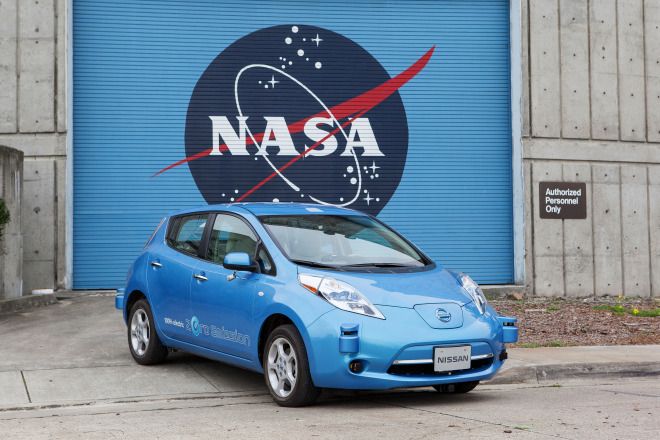Although most people would probably never guess that NASA is seeking the help of a car maker to further innovation, it has just announced a partnership with Nissan, in which the two hope to develop autonomous vehicles.
According to Wired, NASA and Nissan have entered a five-year deal that will eventually give birth to self-driving cars that could not only work on Earth but also distant planets like Mars. The project is being considered an "R&D effort", and robotics engineers developing the car will mostly be working from NASA’s Ames Research Center.
NASA plans to use electric Nissan Leafs and simultaneously assist Nissan with reaching its goals of having autonomous vehicles on the market within the next five years. The space agency already uses partly-autonomous vehicles in the form of its rovers that operate millions of miles from Earth, so it does have a head-start on some of the competition.
Nissan has also been testing cars that can navigate on their own, so together with NASA, it's attempting to create a system that's both fast and smart enough to adapt to urban environments which have changing variables such as pedestrians and construction. It's a monumental task, but one Martin Sierhuis thinks is possible.
Sierhuis is the director of Nissan’s Silicon Valley research center. He also spent a decade as a NASA senior scientist. With that type of experience under his belt, he knows a thing or two and even told Wired that the car project will involve "transforming the relationship between the driver and the car from a master to slave, to a kind of partner".
But when can you expect an actual car on the road from NASA and Nissan? By the end of this year, apparently, with the production phase kicking off around 2020.

